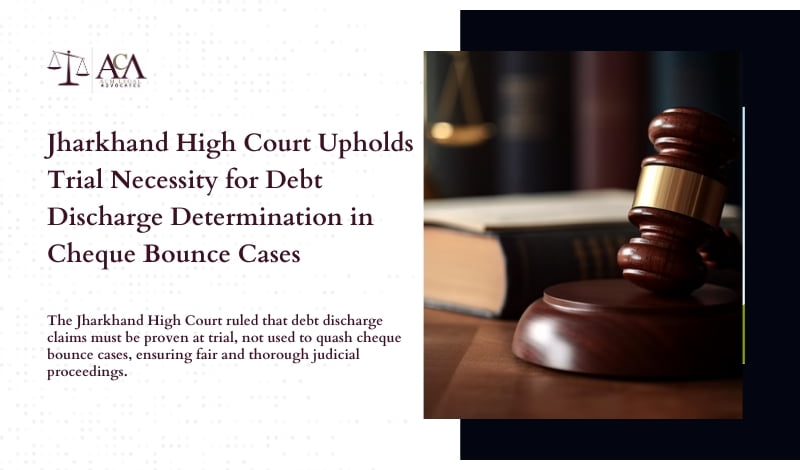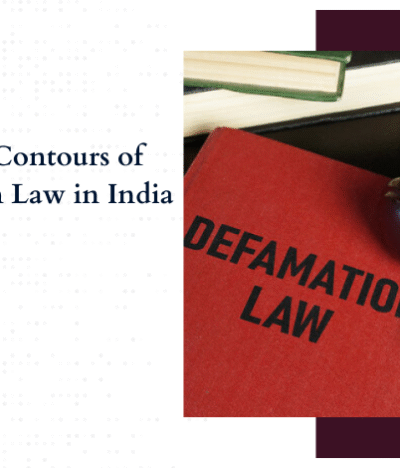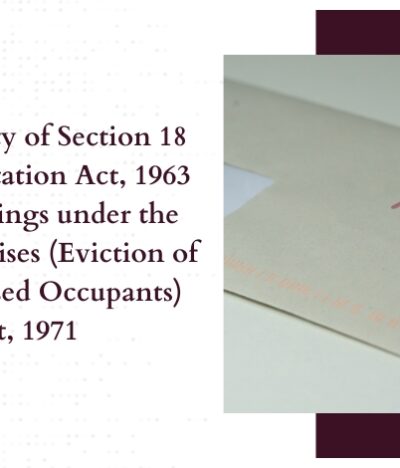In a landmark judgment in the case of Moina Khatoon v. State of Jharkhand, the Supreme Court of India has ruled that selling the entire property of a judgment debtor is impermissible when the sale of part of the property can satisfy the decree. This decision underscores the principles of proportionality and fairness in the execution of decrees.
Case Background
The case involves Moina Khatoon (the petitioner) and the State of Jharkhand along with Abhishek Kumar Verma (the respondent). The petitioner issued a cheque for Rs. 80,000 for the purchase of cement from M/s. Abhinav Trading. The cheque was dishonoured due to insufficient funds when presented at the bank on April 8, 2019. Despite subsequent attempts to settle the dues, including issuing a post-dated cheque for Rs. 64,400, both cheques were dishonoured.
Upon receiving a legal notice demanding payment of the total dues amounting to Rs. 2.23 lakhs, the petitioner failed to settle the amount, prompting the respondent to initiate legal proceedings. The Chief Judicial Magistrate, Ramgarh, took cognizance of the case, leading to the petitioner filing for quashing the proceedings under Section 482 of the Cr.P.C.
The case was presided over by Justice Anil Kumar Choudhary of the Jharkhand High Court, who emphasized the importance of a full trial to determine the veracity of the debt discharge claims.
Legal Arguments and Court’s Analysis
Legal Arguments
The petitioner, Moina Khatoon, argued that the debt owed to the respondent, Abhishek Kumar Verma, had been settled and that the cheque was misused by the complainant. The petitioner’s counsel contended that the blank cheque issued to the complainant was filled with an inflated amount of Rs. 2.23 lakhs, which included not only the cheque amount but also additional dues. The defense argued that the petitioner did not receive the legal notice and that the complaint was an attempt to misuse the cheque despite the settlement of the debt.
The respondents maintained that the petitioner failed to honour the debt despite repeated notices and that the legal proceedings were initiated due to the petitioner’s continued default. They emphasized that the petitioner should not be allowed to quash the proceedings at this stage as the determination of whether the debt was settled is a factual matter requiring a full trial.
Court’s Analysis
Justice Anil Kumar Choudhary noted that the primary contention of the petitioner was that the debt had been paid off and that the blank cheque was wrongfully filled with an exaggerated amount. However, the court held that such a defense could not be a ground for quashing the proceedings under Section 138 of the N.I. Act.
Referring to the Supreme Court’s decision in State of M.P. vs. Awadh Kishore Gupta & Others (2004) and Shiji @ Pappu & Others vs. Radhika & Another (2012), the court highlighted that the High Court should not engage in assessing the reliability of evidence, as this falls within the jurisdiction of the trial court. The court reiterated that the inherent powers under Section 482 Cr.P.C. should be exercised with caution and should not be used to stifle legitimate prosecutions.
Justice Choudhary emphasized, “Now whether or not the petitioner has discharged the debt for which the cheques were issued is a pure question of fact, the veracity of which can only be determined in a full dress trial of the case.” He further noted that determining the discharge of debt is a factual issue and must be addressed during the trial rather than at the pre-trial stage.
Court’s Decision and Impact
The Jharkhand High Court dismissed the petition filed by Moina Khatoon seeking to quash the proceedings under Section 138 of the Negotiable Instruments Act. The court ruled that the question of whether the debt had been discharged could only be determined through a full trial. The court stated that the defense’s claims regarding the settlement of the debt and the misuse of the blank cheque are factual matters that must be examined and verified during the trial.
Justice Choudhary remarked, “The contention of the petitioner that the debt has been discharged and that the blank cheque was misused by the complainant cannot be a ground to quash the entire criminal proceeding in exercise of the power under Section 482 Cr.P.C.” The court underscored that the petitioner has the liberty to present their defense and evidence during the trial.
Impact of the Decision
This ruling reinforces the principle that issues related to the discharge of debt and the genuineness of cheques must be resolved through a full trial rather than through pre-trial quashing of proceedings. It ensures that both parties have the opportunity to present their evidence and arguments in court, thus upholding the integrity of the judicial process.
The judgment also serves as a precedent for similar cases, emphasizing that the High Court should refrain from assessing the reliability of evidence at the pre-trial stage. This decision aligns with the Supreme Court’s directives in State of M.P. vs. Awadh Kishore Gupta & Others and Shiji @ Pappu & Others vs. Radhika & Another, which caution against the premature quashing of proceedings based on factual disputes.
By requiring a full trial to determine the facts, the court ensures that justice is served fairly and thoroughly, preventing the misuse of legal provisions to evade legitimate financial obligations.
Conclusion
The judgment in Moina Khatoon v. State of Jharkhand reaffirms the necessity of a thorough trial to address factual disputes, particularly in cases involving the discharge of debt under Section 138 of the Negotiable Instruments Act. The Jharkhand High Court has set a clear precedent that such defenses cannot serve as grounds for quashing proceedings at the pre-trial stage, ensuring that both the complainant and the defendant have the opportunity to present their cases in full.






